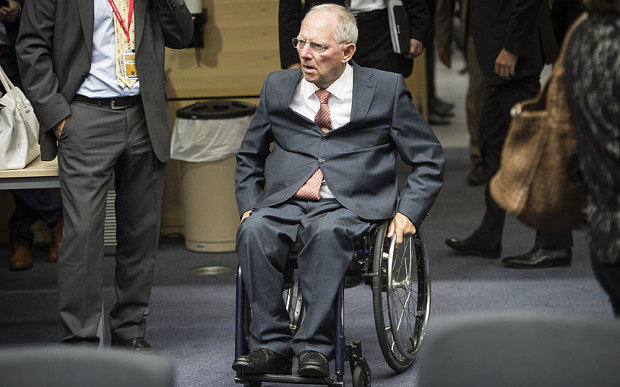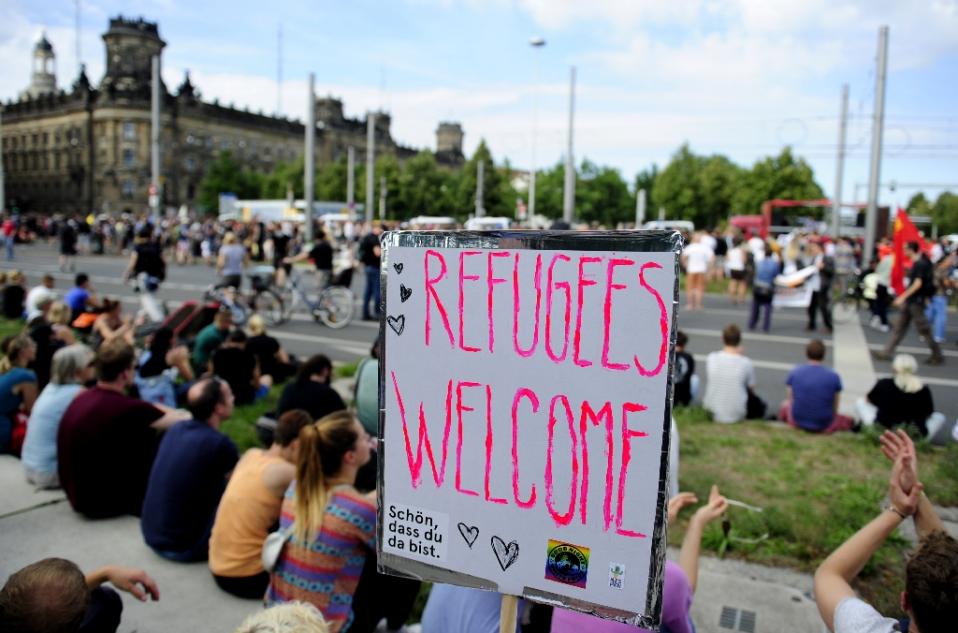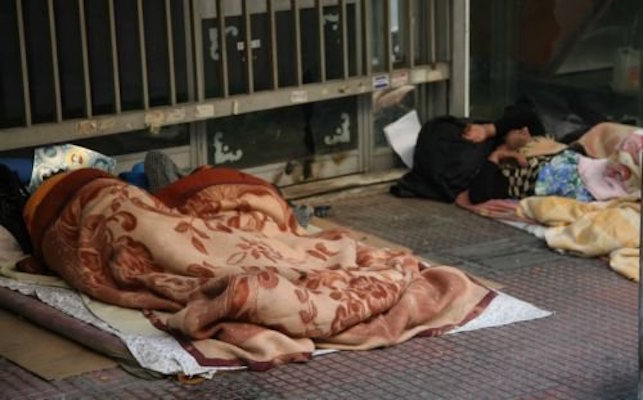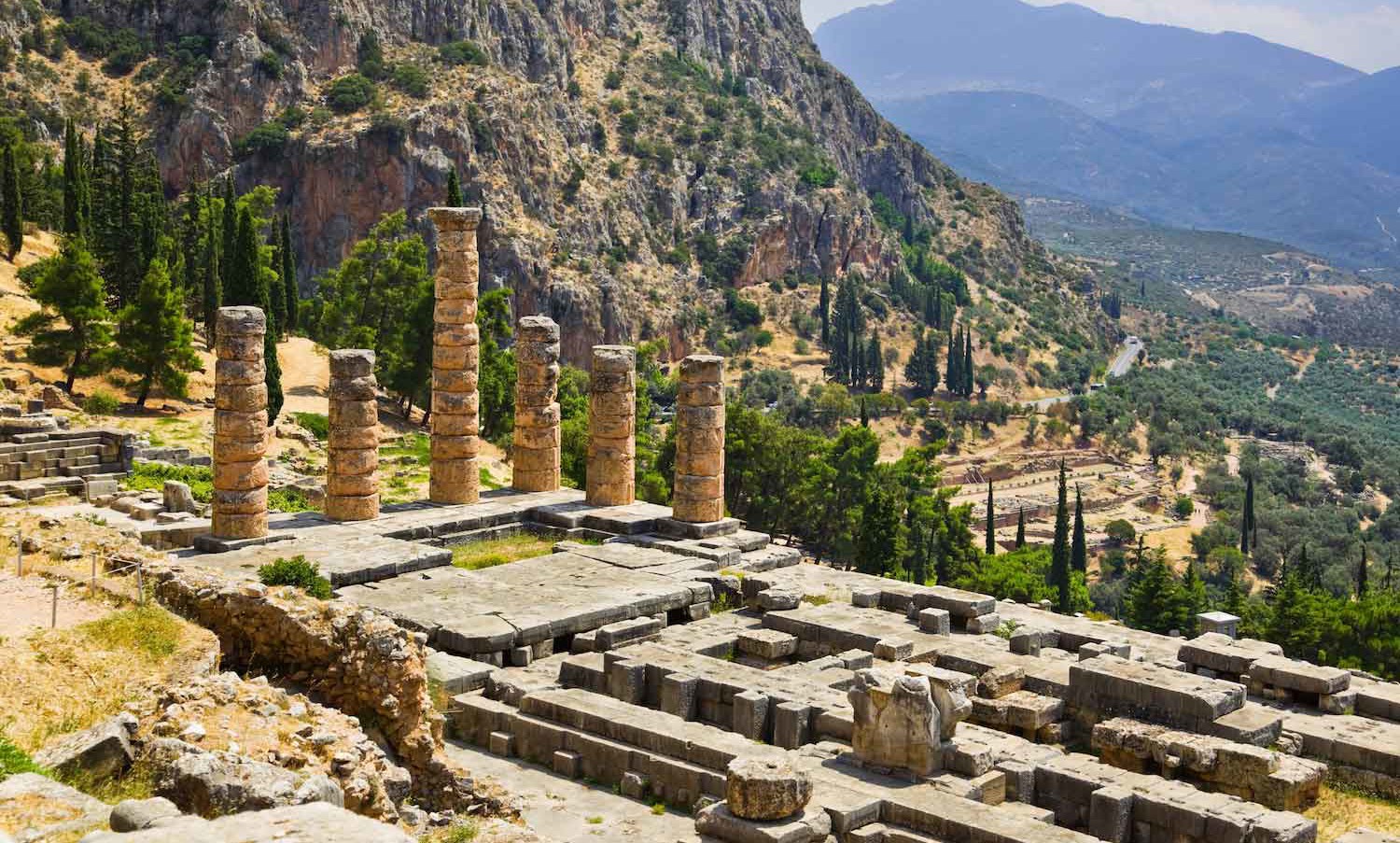Open Letter
to the Heads of State and Government of the European Union who participated in the ‘Small Summit’ with Barak Obama
David Cameron, François Hollande, Angela Merkel and Matteo Renzi.
Ladies and Gentlemen,
Given your prominent roles as leaders in European politics, we turn to you regarding a matter of utmost urgency: preventing the suffocation of Greece and its democratically elected government under the crushing weight of continuously expanding demands by its negotiating partners.
The disastrous humanitarian situation in Greece has been public knowledge for quite some time now. Added to this predicament are the burdens the Greek population must carry with regard to the accommodation of and care for refugees arriving in the country. In this situation, Greece desperately needs the support of its European neighbours instead of renewed stifling austerity. Time is of the essence: if Greece is to implement any sort of crisis management policy at all, then immediate steps must be taken. At this point, it is by all means your responsibility to prevent the breakdown of democratic political agency in Greece!
In light of the problems described, Greece is in urgent need of additional financial resources. At the same time, an abandonment of the crisis strategy imposed on Greece is imperative. Like the first two programmes, the third bailout package represents the kind of drastic treatment that will benefit neither Greece nor its creditors. One particularly damaging element of the third bailout package are the excessive demands for short-term and mid-term budgetary targets, designed to achieve a primary surplus of 3.5 percent by 2018. To demand even more far-reaching austerity measures at this very point in time, following years of deprivation and economic decline, is not only unrealistic and economically senseless, but above all simply cannot be reasonably expected of the Greek people any longer.
We therefore urge you to oblige the relevant EU institutions and those responsible for future negotiations to put the following points into practice:
- that all credit instalments agreed on with Greece be paid out as scheduled (and without the introduction of new demands for austerity measures) in order for Greece to meet repayment requirements.
- that Greece receive additional financial assistance in order to cope with the humanitarian crisis of its own population and the refugees coming to Greece, and
- that a restructuring of Greece’s debt to the extent that the burden of debt service becomes sustainable (long-term debt titles with low interest rates) be at least initiated before the end of 2016. Moreover, with view to the underlying assessment of Greece’s capacity for debt service, excessive targets concerning short- and mid-term budgets must be significantly lowered.
Yours sincerely
Nicola Acocella, Roma, Italia, economist
Elmar Altvater, Berlin, Germany, political economist, member of the scientific council of ATTAC-Germany
Antoine Artous, Paris, France, political scientist
Étienne Balibar, Paris, France, philosopher
Thomas Barth, Ilmmünster/München, Germany, sociologist
Rudolph Bauer, Bremen, Germany, sociologist
Seyla Benhabib, Yale, USA, philosopher, political scientist
Stefan Bestmann, Berlin, Germany, social researcher
Helmut Born, Düsseldorf, Germany, leading trade unionist
Jacques Bidet, Paris, France, philosopher
Hans-Jürgen Bieling, Tübingen, Germany, political scientist
Gretchen Binus, Berlin, Germany, economist
Joachim Bischoff, Hamburg, Germany, sociologist and journalist
Heinz – J. Bontrup, Gelsenkirchen, Germany, economist
Andreas.Botsch, Berlin, Germany, economist
Moses Boudourides, Patras, Greece, economist
Miriam Boyer, Berlin, Germany, sociologist
Heiner Braun, Berlin, Germany, Co-President of the International Peace Bureau (IPB)
Peter Brandt, Berlin, Germany, legal theorist
Michael Brie, Schöneiche, Germany, philosopher
Andrea Brock, Hürth, Germany, international relationsSusan Buck-Morss, New York, NY, USA, philosopher, intellectual historian
Judith Butler, Berkely, Calif., USA, philosopher
Christoph Butterwegge, Köln, Germany, political scientist
Ricardo Cabral, Funchal, Portugal, economist, vice-rector of the University of Madeira
Claude Calame, Paris, France, social anthropologist
Mario Candeias, Berlin, Germany, political scientist
Castellina Luciana, Ex-MEP, Roma, Italy, journalist
Patrice Cohen-Séat, Paris, France, lawyer, honorary president of Espaces-Marx
Laurence Cox, Dublin, Ireland, sociologist
Alexis Cukier, Strasbourg, France, philosopher
Rolf Czeskleba-Dupont, Hvalsø, Denmark, geographer
Jobst Dahle, Berlin, Germany, former teacher
Bo G. H. Dahlqvist, Waterloo, Belgium, pensioner
Georgios Daremas, Athens, Greece, member of the Executive Committee of Attac-Hellas
Nick Dearden, London, Great Britain, campaigner, director of a democratic justice organisation
Judith Dellheim, Berlin, Germany, political economist
Alex Demirovic, Frankfurt a. M., Germany, sociologist
Andreas Diers, Bremen, Germany, historian
Dagmar Dörper, Freinsheim, Gernany, member of ATTAC Mannheim
Stéphane Douailler, Paris, France, philosopher
Sebastian Dullien, Berlin, Germany, economist
Gary Dymski, Leeds, Great Britain, economist
Rolf Eckart, München, Germany, social movement activist
Peter Eigen, Berlin, Germany, lawyer
Roland Erne, Dublin, Ireland, economist
Trevor Evans, Berlin, Germany, economist
Michael Ewert, München, Germany, historian
Jean Louis Fabiani, Budapest, Hungary, sociologist / social anthropologist
Karl Fischbacher, Wien, Austria, Labournet-Austria
Nancy Fraser, New York, NY, USA, critical theorist
Hans-Peter Gase, München, Germany, member of “Sozialforum München”
Jacques Généreux, Paris, France, economist
Sven Giegold, MdEP, Düsseldorf, Germany
Giuliana Giorgi, Berlin, Germany
Werner Goldschmidt, Hamburg, Germany, philosopher of law and legal theorist
John Grahl, London, Great Britain, economist
Dorothea Härlin, Berlin, Germany, member of „Berliner Wassertisch“
Peter Herrmann, Roma, Italy, social scientist
Rudolf Hickel, Bremen, Germany, economist
Willi Hoffmeister, Dortmund, Germany, peace movement activist
Gustav Horn, Düsseldorf, Germany, economist
Katja Kipping, MdB, Dresden, Germany, party president
Joachim Klein, Offenbach, Germany, political theorist and philosopher
Jürgen Klute, Herne, Ex-MEP, Germany
Claus-Dieter König, Brussel/Bruxelles, Belgium, director of the Brussels office of a foundation
Tom T. Kristensen, København, Denmark, modern Greek studies
Sudhir Kumar, Chennai, India, architect
Peter Kuscher, Berlin, Germany, philosopher and political scientist
Jeremy Leaman, Loughborough, Great Britain, European Political Economy
Steffen Lehndorff, Duisburg, Germany, social researcher
Jürgen Leibiger, Radebeul, Germany, economist
Brian Leslie, Tunbridge Wells, Great Britain, economist
Stephan Lindner, Berlin, Germany, ATTAC activist
Jakic Ljubomir, Brussel/Bruxelles, Belgium, journalist
Francisco Louçã, Lisboa, Portugal, economist
Camille Louis, Paris, France, philosopher and dramaturgist
José Ramón Mariño Gonzalez, Bilbao, Basque Country, economist
Alberto Martínez Sánchez, Valencia, Spain, vice president of ATTAC in the Valencia Region
Angie Mathieu, Paris, France, student/squatter
Christiane Mende, Berlin, Germany, historianliebe
Sandro Mezzadra, Bologna, Italy, political theorist
Hans Misselwitz, Berlin, Germany, biologist
Margret Moenig-Raane, Berlin, Germany, former services trade union leader
Francine Mestrum, Brussels, Belgium, member of Global Social Justice
Frieder Müller, Buggingen, Germany, trade unionist
Siegfried Müller-Maige, Frankfurt a. M., Germany, economist, member of ATTAC
Kalypso Nicolaïdis, Oxford, Great Britain, international relations
Daniel Nitsch, Berlin, Germany, political scientist
Claus Offe, Berlin, Germany, political scientist
Norman Paech, Hamburg, Germany, legal theorist
Ricardo Paes Mamede, Lisbon, Portugal, economist
Alexis Passadakis, Frankfurt a.M., Germany, member of ATTAC
Dagmar Paternoga, Bonn, Germany, Council Member of ATTAC Germany
Lisa Paus, MdB, Berlin, Germany
Helmut Penschinski, Wuppertal, Germany, former teacher, ATTAC activist
Mario Pianta, Urbino, Italy, political economist
José Reis, Coimbra, Portugal, economist
Jörg Reitzig, Ludwigshafen, Germany, social scientist
Jorge Riechmann, Madrid, Spain, philosopher, political scientist and poet
Bruce Robbins, New York, NY, USA, English and Comparative Literature
Michelle Riot-Sarcey, Paris, France, historian
Jan Rolletschek, Berlin, Germany, cultural and political theorist
Thomas Sablowski, Frankfurt a. M., Germany, political scientist
Pierre Salama, Paris, France, Latin-American studies
Thomas Sauer, Jena, Germany, economist
Patrick Saurin, Paris, France, Spokesperson for the French Union Sud Solidaires BPCE
Hans Walter Schmitt, Kassel, Germany, social movement activist
Dieter Scholz, Berlin, Germany, former trade union leader
Mechthild Schrooten, Bremen, Germany, economist
Peter Schubert, Dresden, Germany, engineer
Gesine Schwan, Berlin, Germany, political scientist
Ingo Schulze, Berlin, Germany, writer
Ursel Schumm-Garling, Berlin, Germany, sociologist
Lynne Segal, London, Great Britain, psycho-social studies
Jai Sen, New Delhi, India, Director of CACIM – India Institute for Critical Action: Centre in Movement
Francis Sitel, Paris, France, political analyst, co-director of “contretemps”
Viriato Soromenho-Marques, Lisbon, Portugal, philosopher
Boaventura de Sousa Santos, Coimbra, Portugal, social scientist
Barbara Spinelli, MdEP, Rom, Italy
Dieter Spöri, Berlin, Germany, former minister of economy
Elsa Stamatopoulos, New York, NY, USA, legal theorist, anthropologist
Dieter Stork, Rüsselsheim, Germany, former teacher
Aleksander Sulejewicz, Warsaw, Poland, economist
Roland Süß, Birkenau, Germany, member of ATTAC Germany
Rolf Sukowski, Berlin, Germany, chair of OWUS e.V.
Mario Tiberi, Rome, Italy, economist
Jan Toporowski, London, Great Britain, economist
Axel Troost, MdB, Leipzig, Germany, economist
Hans-Jürgen Urban, Frankfurt a. M., Germany, Board of the Metalworkers’ Union
Lode Vanoost, Sint-Genesius-Rode, Belgium, former Deputy Speaker of the Belgian House of Representatives
Marie-Dominique Vernhes, Hamburg, Germany, social activist
Guido Viale, Milan, Italy, economist
Barbara Volhard, Freiburg, Germany, member of ATTAC Freiburg
Antje Vollmer, ex-MdB, Berlin, Germany, former vice president of the German Bundestag
Peter Wahl, Berlin, Germany, president of WEED – World economy, ecology and development
Immanuel Wallerstein, New Haven, Conecticut, USA, social scientist and social historian
Heidemarie Wieczorek-Zeul, Wiesbaden, Germany, former federal minister for economic co-operation
Angela Wigger, Nijmegen, Netherlands, international political economist
Stefan Wilker, Osnabrück, Germany, in the name of ATTAC Regional group Osnabrück
Ulrich Wilken, MdL, Frankfurt a. M., Germany, vice president of the regional parliament of the state of Hessen
Markus Wissen, Berlin, Germany, social scientist
Frieder Otto Wolf, Ex-MEP, Berlin, Germany, philosopher
Harald Wolf, MdA, Berlin, Germany
Andrea Ypsilanti, MdL, Frankfurt a. M., Germany
Gabi Zimmer, MEP, Werder, Germany, group president











